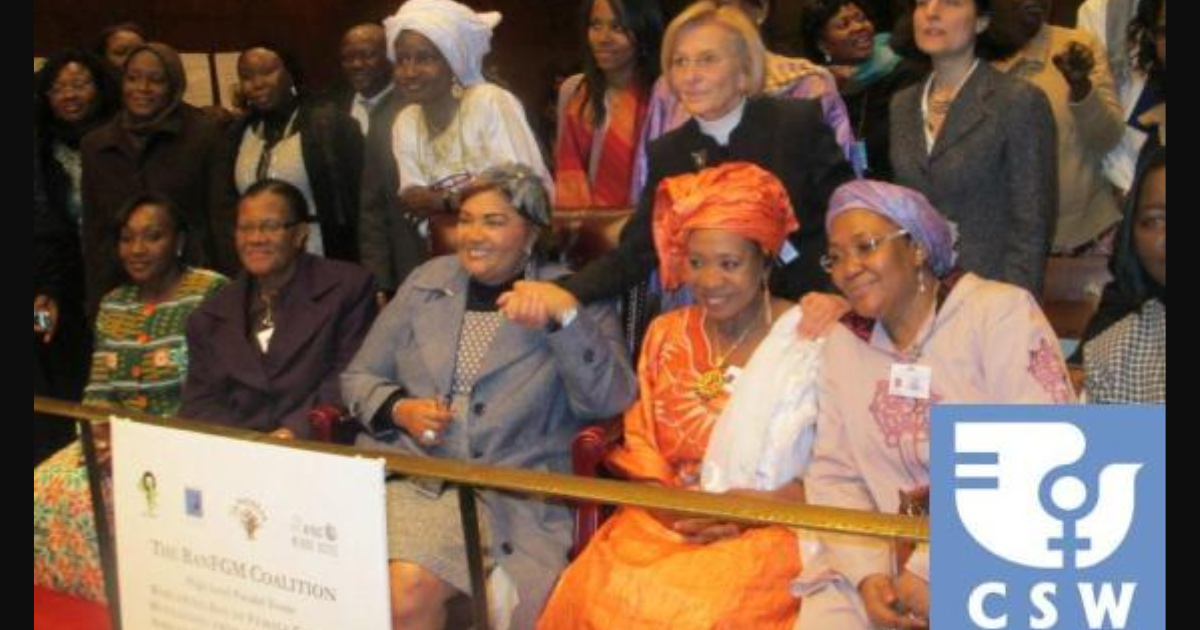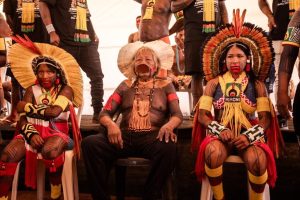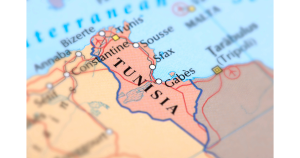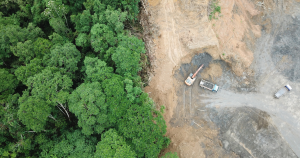Among the significant results of the 56th Session of the United Nations Commission on the Status of Women (CSW) which concluded yesterday, is a Decision which recommends that the issue of female genital mutilation (FGM) be taken up for consideration by the United Nations General Assembly at its forthcoming 67th Session as part of the agenda item “Advancement of women”.
This CSW Decision is the result of the leadership and the determination of the African Group at the UN to bring worldwide attention to the issue of FGM, and follows the Campaign for a Worldwide Ban on FGM spearheaded by an ever-expanding Coalition, composed of No Peace Without Justice (NPWJ), the Inter-African Committee on Traditional Practices Affecting the Health of Women and Children (IAC), Euronet-FGM, and the NGOs La Palabre, Manifesto 99 and Equality Now.
Declaration by Alvilda Jablonko, Coordinator of the FGM Program of No Peace Without Justice:
“No Peace Without Justice, together with the other members of the BanFGM Coalition, applaud the CSW’s Decision, which signals a historic step in the international campaign to foster global leadership in the fight against female genital mutilation as a wide-scale and blatant violation of the fundamental human rights of women and girls.
“Further to the historic African Head of States’ Decision adopted in July 2011 at the African Union Summit in Malabo, Equatorial Guinea, we would like to thank the African Group at the UN for its forceful stance and essential contribution to achieve a common and harmonised approach of all African states in support of a Resolution of the United Nations General Assembly addressing this human rights violation.
“A UNGA Resolution banning FGM could be a pivotal instrument to spur greater harmonization of legal tools and mechanisms against FGM not only in Africa but in the numerous affected countries around the world as well as to provide strong and clear support for activists everywhere working to bring an end to FGM, including in the Middle East (as Yemen, Iraq), in Asia (such as Indonesia, Malaysia…) and in South America (Colombia, Peru…). Critically, the international community’s universal condemnation of this harmful practice would express political will at the highest level to recognise – and ensure the adoption of all measures to bring an end to – FGM as a human rights violation against millions of women and girls around the world. This is a shift that women’s rights advocates have tenaciously worked towards over the past two decades.
“The time has come for all States to take responsibility and give heed to the voices of the innumerable human rights groups, women’s associations and individual advocates that fight a daily battle to challenge this harmful practice and work towards its elimination.We look forward the United Nations General Assembly to adopt by the end of this year, at its 67th Session, a Resolution to ban female genital mutilation worldwide, which would demonstrate the strong commitment of the international community to human rights and particularly the rights of women and girls.”
Read the CSW Decision: English, French, Spanish, Arabic
Ban FGM Campaign
Over the past years, the members of the Ban FGM Coalition have collaborated on several initiatives to raise awareness internationally about the need for a UNGA Resolution banning this human rights violation, gathering the support of human rights activists, women’s organizations, parliamentarians and government representatives from throughout Africa and Europe.
On 27 February, at the 56th Session of the UN Commission on the Status of Women (CSW), a high-level parallel event convened by the Ban FGM Coalition provided further substantial confirmation of the strong commitment by African States to support the process now underway. The meeting, opened by Executive Director of UN Women Michelle Bachelet, had as its keynote speaker H.E. Mrs Chantal Compaoré, and included speeches by seven Ministers (Cameroon, Cote d’Ivoire, Guinea, Italy, Niger, Togo, Tunisia).
For more information, contact Alvilda Jablonko, Coordinator of the FGM Program, on ajablonko@npwj.org, phone: 32 2 548 39 13 or Nicola Giovannini, Public Affairs Coordinator on ngiovannini@npwj.org, phone: +32 2 548 39 15.




